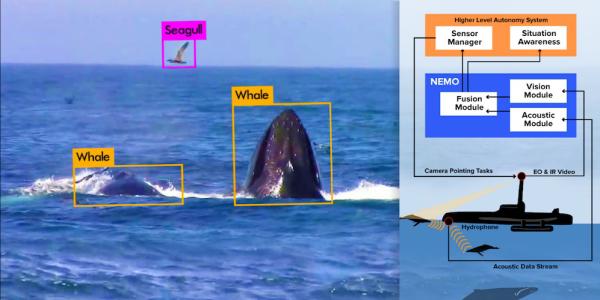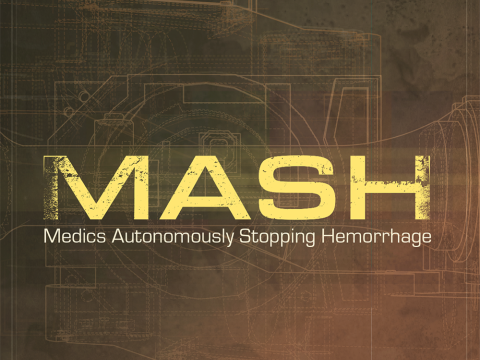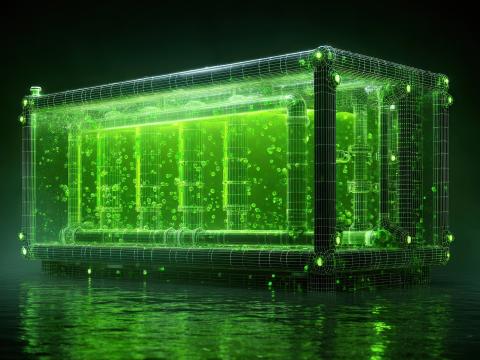Charles River is Developing Advanced Marine Mammal Detection System
The Defense Advanced Research Projects Agency (DARPA) selected Cambridge, Massachusetts-based Charles River Analytics for a $1.5 million object detection and sensor processing effort. Under the follow-on contract, the company will develop a multi-sensor module that harnesses machine learning to autonomously and accurately detect whales and other marine mammals.
"To protect marine mammals from collisions and sonar exposure, sailors must keep a vigilant lookout," the company reported. "Operators of remotely operated vehicles must also stay alert, and unmanned surface vehicles’ (USVs') currently limited and narrow video feeds create risk, too. To reduce the strain on human lookouts and give USVs the ability to steer clear, the Nautical Evaluation of Mammal Observation, or NEMO, will improve visual detection and classification onboard crewed and uncrewed vessels by developing new animal and ship detectors."
Charles River's NEMO system combines information from their so-called Awarion Autonomous Lookout system, neural networks and probabilistic data fusion methods to more accurately detect and classify marine mammals using both visual and acoustic feeds. To better understand whale behavior patterns, the company is working with marine mammal experts from the New England Aquarium to help recognize patterns that indicate the presence of whales, including circling birds, foaming patterns and blows. The company is incorporating the pattern information into the multi-sensor module to improve detection of whales that are near the surface but are not visible. Meanwhile, collaborators from Raytheon are contributing physics-based acoustic simulation to help model the effects of range, background noise and sea state on acoustic detection reliability.
“At Charles River Analytics, we work on a lot of interesting tech to support autonomy,” said Ross Eaton, director of Marine Systems in Charles River’s Sensing, Processing, and Applied Robotics Division, and principal investigator of the NEMO effort. “NEMO is especially cool because we’re also working to protect some of the most vulnerable animal populations on the planet. Being able to work on interesting science that will have a positive impact on the natural environment is a win-win for our team.”
The company noted that NEMO will reduce fatigue of humans performing visual mammal lookouts and improve the safety of vessels on which it is installed. Charles River hopes that the system will serve as a building block for future marine autonomy development.





Comments